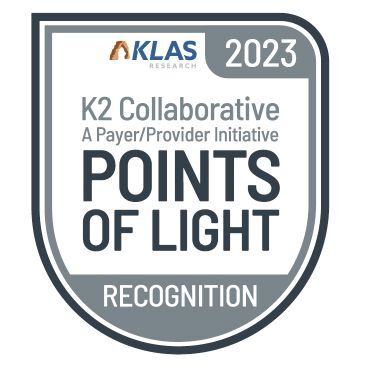Executive Summary

Prior authorizations for referrals and clinical procedures are widely acknowledged as a significant pain point for all involved parties—payers, providers, and patients. Using implementation guides from HL7’s Da Vinci Project, the collaborators in this case study created bidirectional data exchange through a FHIR API that enables an automated, in-workflow authorization process. The pilot use cases have been successful, achieving improved efficiency, reduced costs, and—most critically— more timely care and improved patient outcomes.
Points of Light—Outcomes Achieved through Collaboration
- Improved efficiency through automated workflows that facilitate timely authorizations for therapeutic Botox treatments
- Improved processes and governance for both parties
- Cost savings for both parties through significant reduction in manual processes
- Improved patient outcomes via more timely access to care
- Three-year CMS exemption that allows electronic data to be transferred as FHIR bundles rather than the standard, HIPAA-required X12, 275, and 278 transactions
Download the KLAS Research Points of Light Case Study to learn more about the collaboration between UC Davis Health, a Payer Organization, and InterSystems, Including:
- Points of Friction—Challenges to Be Solved
- High administrative costs associated with labor-intensive authorization processes
- Siloed workflows and lack of transparency between payers and providers create churn and delay care
- Action Plan—How the Collaborators Worked Together to Reduce Friction
- Partnered on a pilot to automate authorization requests and approvals for therapeutic Botox treatments
- Identified mutual business goals and success metrics
- Established bidirectional, in-workflow data sharing between the payer and provider organizations
- Obtained three-year CMS waiver exempting the collaborators from HIPAA requirements for electronic transactions
- Lessons Learned—What Best Practices Can Other Organizations Replicate?
- Develop a collaborative statement of work that includes all stakeholders (payer, provider, and IT vendor)
- Start with a pilot and be clear about the commitment and availability of financial and human resources
- Benefits can be gained without adding to already onerous administrative burdens
- What’s Next?—Vision for the Future
- Identify additional use cases and payer/provider partners
- Prove to CMS that the project has reduced the administrative burden
- Build a consent model

























